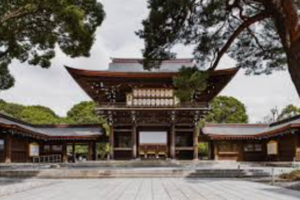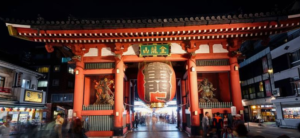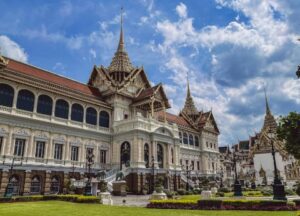
23 September
(in Samarkand)
My last few nights were not as peaceful as I had hoped. A family from Kyrgyzstan took over the hostel for the weekend. The hostel is fully occupied. The round, plump, wrinkle-free gentleman is here for the wedding of one of the gentleman’s daughters. They returned home very late, very drunk and very noisy. In the morning, vodka bottles replace water bottles by the bedside: pneumatic debris, high winds from valves. Beautiful comic discomfort. Fortunately, I had an apology in the morning… and a lovely family lunch of charcuterie and breaded fish. Although the Kyrgyz are noisy, they are at first friendly and generous: I was called a friend up to an arm.
The wedding was a success: the in-laws had a good time in Samarkand.
In the dormitory, under the covers, a frightened old Chinese man had not appeared all morning. Travel is also about this: it’s not just about beautiful landscapes and sunsets.
The platform at Samarkand station mainly consists of tourists, wheeled suitcases, shorts and packsacks. Beside me in the wagon, an old Uzbek basset hound offers me a piece of rye bread from under his plastic bag as he usually does with pigeons in the park. I accepted the offer as I quipped: I opened the vault to the impossible conversation of the deaf and mute. The basset hound survives: the train will be four hours long.
The decor always strikes a balance between subtle greenery and predictable dryness. Sometimes, the raised rear ends look like soldiers’ heads in an impressive purple field of checkerboard cut cotton. The basset hound pinches my thigh as he beckons me out of the train: he smiles at me with his wrinkled face like a ripe fruit. We don’t understand each other, but I must explain that he is rather proud to share his country with me.
The Bukhara train station is quite far from the old city. The taxi I sat in was definitely not the most appropriate (age doesn’t make a difference in the end). The planned thirty minutes would stretch to a well-calculated ninety minutes: the driver would blame his GPS. In short, this will give me the first lap around the track for free, I tell myself.
September 24-25
The old city of Bukhara took us much longer than Samarkand: the latter seemed a little too cotton candy and chewing gum for my taste. The intervening paths and corridors take us back hundreds of years here to before the Russian annexation of Turkestan. We can almost hear the emergence of caravan horses from the ends of the earth or merchants exchanging camel hair hats for multi-colored robes produced by worms in the strange far east. Although completely renovated, Bukhara’s miraculous authenticity is still successful in its work.
Like the Registan of Samarkand, the great gates (madrasas) here also impress with their splendor and the turquoise and turquin mosaic details tiled on the crossword boards.
Small merchant premises have changed little since the days of the Silk Road. Artisans abound: they are everywhere under vaults, in historic buildings, between two archeological sites or at the foot of minarets. Times have changed since the caravans but trade in Bukhara has obviously not slowed down. We still see camel hair hats and beautiful large multicolored dresses woven in the Far East.
Watercolor artists wet their tissue paper, sculptors shape wood, and ironworkers carve trays with chisels. Carpet vendors spread their magnificent textile art in the sun. Some are cotton and some are silk, some are machine made and some are handmade at ten times the cost. The big mat costs the same as a small car. At this price, they are definitely not prayer rugs anymore.
Sometimes, in the back room, you can find old antiques from the Soviet era: copper samovars, wing lamps, old Russian books, pins and medals, daggers and busts of Lenin.
“Just watching, just watching”.
Behind a vendor, a rainbow of pashminas sighs a bunch of old chapkas, aviator helmets and USSR capes.
I’m eating lagman noodles at the back of a restaurant in the square. Plaintive, Tristophone Russian music is all around us. The waitress, with a hollow face, has two eyebrows that meet: a W is imprinted on her forehead. It’s aesthetic: we shouldn’t judge fashion elsewhere. Between two courses of soup, the poor waitress loses her footing and lies full length between two tables. Looks like a fixed stone tile. Nothing bad, luckily.
Immediately, a little girl comes out of the kitchen with an incense stick with a fragrant smoke, she places herself on the tile, then from the kitchen to the toilet, following the wall: you must quickly push her spirit back before she travels to someone else. I get up and quickly pass through the lucky clouds: everything should be fine for the next few days, I tell myself.
Tomorrow (rather late today): I will finish my night by train to Khiva. The dial is set to: 2AM.



